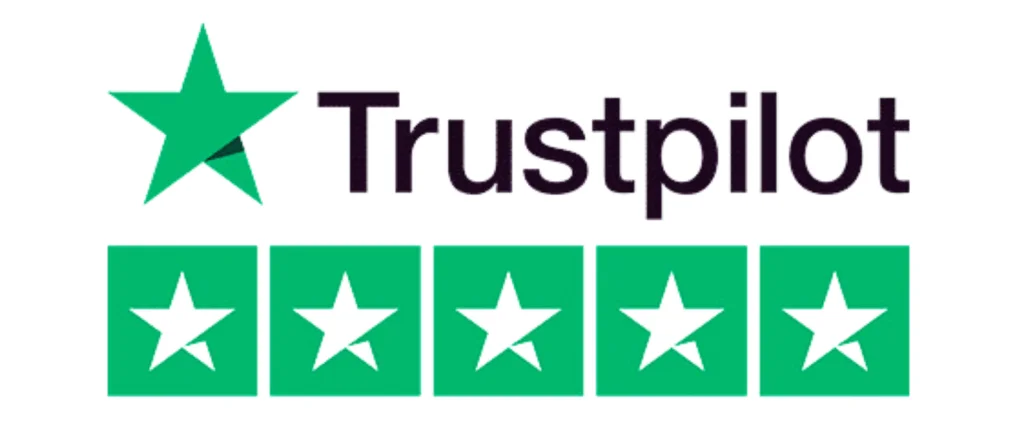This travel and tourism vocabulary for IELTS will help you with any speaking questions that may come up around this topic or essays related to it.
You may know some of the words, but you can see examples of them in context which will help you know how to use them correctly.
Accommodation
A place to stay overnight or for a period of time.
- “We booked a comfortable accommodation near the beach for our summer vacation.”
- “The hotel offers a range of accommodations, from standard rooms to luxurious suites.”
Adventure
An exciting or daring experience, often associated with outdoor activities.
- “He decided to go bungee jumping as he wanted to experience an adrenaline-pumping adventure.”
- “We embarked on an exciting adventure by taking a safari tour in the African savannah.”
Attractions
Places or things that are interesting or captivating to visit.
- “The city is famous for its numerous attractions, such as museums, parks, and historic landmarks.”
- “We visited all the popular tourist attractions in London, including the Tower of London and Buckingham Palace.”
Backpacking
A style of travel involving carrying all necessary belongings in a backpack and staying in budget accommodations.
- “She went backpacking through Southeast Asia, staying in hostels and meeting fellow travelers along the way.”
- “Backpacking allows you to explore different destinations on a tight budget.”
Cruise
A trip or vacation on a ship, usually involving stops at different ports.
- “My parents are going on a Mediterranean cruise, visiting several countries in the region.”
- “We enjoyed a luxurious cruise around the Caribbean, stopping at beautiful tropical islands.”
Cuisine
The style of cooking or particular dishes associated with a specific region or culture.
- “I can’t wait to try the local cuisine, especially the traditional street food.”
- “The restaurant specializes in Italian cuisine, offering a variety of pasta and pizza dishes.”
Culture
The customs, traditions, arts, and social institutions of a particular group of people.
- “Immersing yourself in the local culture is an important aspect of traveling.”
- “We attended a traditional dance performance to experience the local culture.”
Currency
The money used in a particular country.
- “You should exchange your currency to the local currency before traveling to avoid any inconvenience.”
- “The hotel accepts various currencies, including US dollars and Euros.”
Destination
A place where people travel to or visit.
- “Paris is a popular tourist destination known for its beautiful architecture and rich history.”
- “I am planning my next vacation and cannot decide on a destination yet.”
Diversity
The presence of a wide range of human differences within a group, organisation, or society, encompassing aspects such as race, ethnicity, gender, sexual orientation, socio-economic status, age, religion, ability, and more.
- “One of the most enriching aspects of traveling abroad is experiencing the diversity of cultures firsthand, from sampling traditional foods to participating in local customs and rituals.”
- “In bustling cities like London and New York, the diversity of people you encounter while exploring the streets highlights the global interconnectedness of travel, offering a mosaic of languages, traditions, and perspectives.”
Ecotourism
Responsible travel to natural areas while minimizing the negative impact on the environment and supporting local communities.
- “We participated in an ecotourism program, where we learned about sustainable agriculture practices in the rainforest.”
- “Ecotourism has become increasingly popular as travelers seek authentic experiences with minimal environmental impact.”
Expedition
A journey undertaken for a specific purpose, often involving exploration or research.
- “The scientific expedition aims to study the wildlife in the remote rainforest.”
- “We joined an expedition to climb the highest peak in the region.”
Guide
A person who leads or shows the way, providing information and assistance to travelers.
- “The tour guide explained the history and significance of the ancient ruins.”
- “We hired a local guide to navigate through the bustling markets.”
Guidebook
A book providing information on a specific place, including recommendations for sightseeing and accommodations.
- “I bought a guidebook for New York City to help plan my itinerary and find the best restaurants in the area.”
- “The guidebook contains maps and useful tips for travelers.”
Honeymoon
A vacation taken by newlyweds immediately following their wedding.
- “They went on a romantic honeymoon to the Maldives, enjoying private beach villas and romantic candlelit dinners.”
- “The couple decided to postpone their honeymoon due to work commitments and planned to take it later in the year.”
Hospitality
The friendly and welcoming treatment of guests or strangers.
- “The locals showed us great hospitality, ensuring we had a comfortable stay in their town.”
- “The hotel staff provided excellent hospitality, going above and beyond to meet our needs.”
Hostel
An inexpensive lodging option, offering shared rooms and facilities, often used by budget travelers.
- “We stayed at a hostel in Amsterdam, meeting other young travelers from different parts of the world.”
- “The hostel provides free breakfast and Wi-Fi for its guests.”
Itinerary
A plan or schedule of a trip, including the places to visit and the activities to be done.
- “I have prepared a detailed itinerary for our trip to Thailand, including all the tourist attractions we want to see.”
- “Make sure to check your itinerary to see if there are any changes to the departure time.”
Jet lag
A temporary sleep disorder caused by traveling across different time zones.
- “After flying from New York to Tokyo, I experienced severe jet lag and had trouble adjusting to the new time zone.”
- “To prevent jet lag, it is advisable to stay hydrated and try to sleep on the plane.”
Landmark
A notable or recognizable feature of a landscape or place.
- “The Eiffel Tower is one of the most iconic landmarks in Paris.”
- “We took a selfie in front of the famous landmark.”
Local
Relating to or characteristic of a particular place or its inhabitants.
- “We enjoyed trying the local cuisine and interacting with the friendly locals.”
- “The local tour guide showed us around and shared interesting stories about the area.”
Nature
The physical world and its natural features, including plants, animals, and landscapes.
- “The national park is known for its breathtaking natural beauty, with stunning waterfalls and lush forests.”
- “We went hiking to experience the wonders of nature.”
Off the beaten path
The activity of visiting interesting or famous places.
- “We spent the whole day sightseeing in Rome, visiting iconic landmarks such as the Colosseum and the Vatican.”
- “The city offers various sightseeing tours, allowing visitors to explore the best attractions.”
Resort
A place designed for relaxation and recreation, offering leisure amenities and often located in attractive surroundings.
- “The beachfront resort provides luxurious accommodation, spa facilities, and a private beach.”
- “We booked a family-friendly resort that has a kids’ club and swimming pools.”
Sightseeing
Referring to places or routes that are not frequently traveled by tourists, often offering unique and authentic experiences.
- “During our trip to Italy, we decided to venture off the beaten path and explore the charming villages nestled in the countryside”.
- “Instead of sticking to the crowded tourist hotspots in Thailand, we opted for an off the beaten path adventure, trekking through remote jungles and discovering hidden waterfalls that few travelers have ever seen”.
Souvenir
A memento or keepsake often purchased as a reminder of a trip or experience.
- “I bought a beautiful handmade necklace as a souvenir from my trip to Bali.”
- “The souvenir shop offers a wide range of products, including keychains, magnets, and t-shirts.”
Stereotyping
The process of making assumptions or generalisations about a group of people based on characteristics such as race, ethnicity, nationality, gender, or other factors, often oversimplifying or exaggerating traits and ignoring individual differences.
- “Despite its reputation for being unsafe, John found that his experience traveling in South America shattered the stereotyping he had heard, as he encountered warmth and hospitality from the locals in every city he visited.”
- “While planning her trip to Asia, Sarah was warned by friends to be cautious of pickpockets and scams, but upon arrival, she discovered that such stereotyping didn’t accurately reflect the diverse and welcoming cultures she encountered throughout her journey.”
Tour
A guided journey or trip, often with a planned itinerary and organized by a travel company.
- “We are going on a guided city tour to explore the main attractions.”
- “The tour includes transportation, accommodation, and meals.”
Tourist
A person who is traveling or visiting a place for pleasure or leisure.
- “The city attracts millions of tourists each year due to its historical significance and cultural diversity.”
- “The tourist asked a local for directions to the nearest museum.”
Traveler
A person who is traveling, particularly for leisure or business.
- “As an avid traveler, she has visited over 30 countries around the world.”
- “The fellow traveler recommended a hidden gem restaurant in the city.”
Visa
An endorsement on a passport granting permission to enter, leave, or stay in a country for a specified period.
- “I need to apply for a visa before I can travel to China.”
- “Her visa expired, so she had to leave the country and reapply for a new one.”
View an International Travel and Prejudiced Essay which
uses travel and tourism vocabulary for IELTS
Comments
Any comments or questions about this page or about IELTS? Post them here. Your email will not be published or shared.
Band 7+ eBooks
“I think these eBooks are FANTASTIC!!! I know that’s not academic language, but it’s the truth!”
Linda, from Italy, Scored Band 7.5






